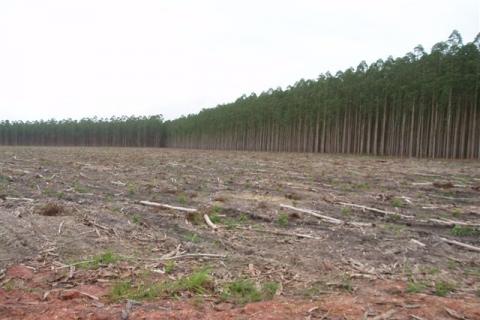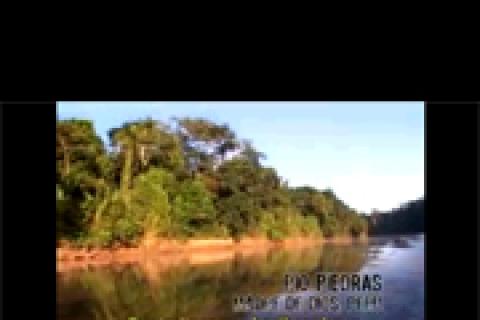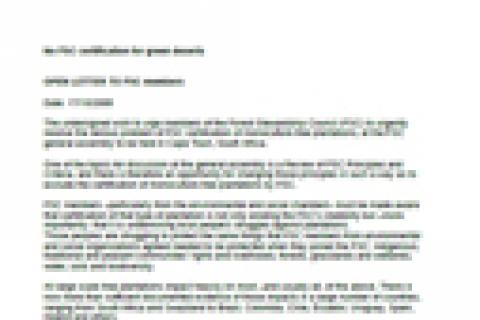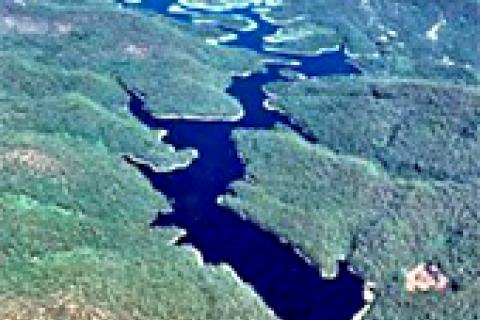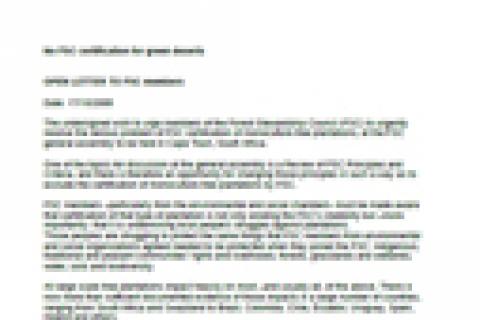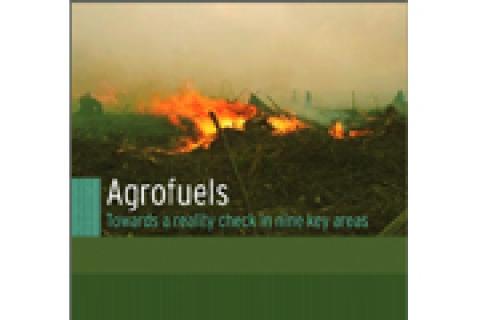We have recently learnt that Veracel has launched a process to obtain FSC certification for its plantations. It has hired the consulting company SGS for this purpose.
Other information
By Raúl Zibechi.
Source: Programa de las Américas - www.ircamericas.org
Only available in Spanish -
Por Pablo Cingolani - 21/Julio/2007
No a las mega represas de Lula en el río Madera
In an “Open Letter to the population and Brazilian authorities”, the Commission of Tupinikim and Guarani Chiefs and Leaders state:
“Today (24/07/2007) we are starting to carry out several peaceful actions with the aim of retaking possession of the 11,009 hectares of lands that belong to us and that have already been thoroughly identified by the FUNAI [the Federal Agency for Indigenous Issues] as lands traditionally occupied by us, Tupinikim and Guarani.
Chile is where the “forestry model” introduced into the countries of the South – that is to say large-scale monoculture tree plantations, mainly aimed at producing pulp for export – has been “sold” best.
Between 1991 and 2001, Shell Renewables -a division of Shell Oil International- implemented a forestry operation based on the planting and harvesting of fast-growing cloned eucalyptus trees (see WRM Bulletin 46), with the aim of establishing a high-yield source of biomass for future energy generation.
Extensive areas of PNG’s tropical forests have been cleared to give way to export-oriented oil palm plantations, which have been established under the “Nucleus Estate Smallholder Scheme”. This means that a central company having its own plantation also contracts small farmers to supply it with oil palm fruit. The structure of the Nucleus Estate Smallholder Scheme and the nature of oil palm itself are raising serious concerns amongst civil society.
Only available in Spanish -
Señor Manuel Zelaya Rosales, Presidente de la República Señor Roberto Micheletti, Presidente del Congreso de la República Abogada Vilma Morales, Presidenta de la Corte Suprema de Justicia Diputadas y Diputados del Congreso Nacional Magistradas y Magistrados de la Corte Suprema de Justicia
By Various Organizations, June 2007
Foreword
This paper has been published on the occasion of the twelfth meeting of the Subsidiary Body on Scientific, Technical and Technological Advice (SBSTTA) of the Convention on Biological Diversity, Paris, 2-6 July 2007. This review of data and publications and policy analyses on many, often interconnected issues could only be achieved thanks to the contributions of many concerned citizens and experts from many countries.
The certifying firm SGS has launched a consultation process for the FSC certification of Veracel Celulose’s eucalyptus plantations. This company is owned by the Swedish-Finnish company Stora Enso and the Norwegian-Brazilian company Aracruz Celulose and its plantations are established on 78,000 hectares of land in the extreme south of the State of Bahia. The negative impacts of those plantations are resulting in considerable local resistance (see Bulletin No. 109). The main assessment will be made between 23 and 27 July 2007.
Through various programmes and state incentives, under the auspices of international cooperation agencies, monoculture tree plantations of fast growing species have been established in the three continental regions of Ecuador and are rapidly becoming widespread, generally destroying primary ecosystems.
